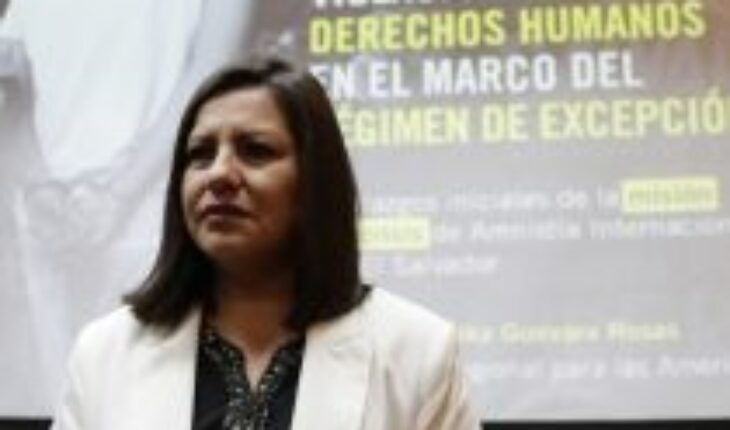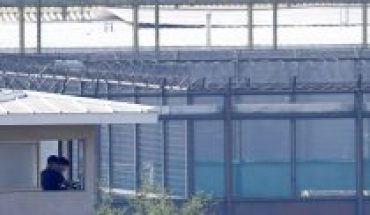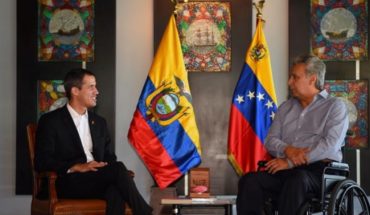An investigation by Amnesty International (AI) in El Salvador determined that state authorities are perpetrating “serious violations” of human rights within the framework of an emergency regime, in force since the end of March and that suspends constitutional guarantees, and warned of the possibility of “international criminal responsibility”.
This conclusion is made known when the fourth year of the government of President Nayib Bukele begins, who on Wednesday night gave a speech to the nation with the issue of human rights absent and in which he again criticized national and international organizations.
“After interviewing victims and their families, human rights organizations, journalists, justice operators, trade unionists and community leaders, we have concluded that there is a situation of serious human rights violations here,” said Erika Guevara-Rosas, director for the Americas at AI, during a press conference in San Salvador.
Salvadoran organizations and the Attorney General’s Office for the Defense of Human Rights (PDDH) have received more than 1,500 complaints of abuse by the authorities, mainly due to arbitrary detentions.
They have also documented the death of 23 people detained under this regime and who died in state custody.
DOCUMENTED CASES
Guevara Rosas indicated that, in recent weeks, AI “documented in depth 28 emblematic cases of human rights violations, corresponding to 35 people.”
He noted that these include “cases of torture and ill-treatment” in detention centers and prisons, as well as indiscriminate detentions.
“Amnesty International received testimonies from several released people who described the horrors experienced during the internment,” he said, adding that these also reveal “the level of control and cruelty that gangs possess inside the cells.”
In addition, he said that there are “extreme conditions of overcrowding that would be resulting in violations of the rights to life and personal integrity.”
According to the AI representative, El Salvador would have been placed as the country with the highest prison overcrowding in the world with 1,164 people detained per 100,000 inhabitants, above the rate of 639 that the United States has.
This, Guevara Rosas stressed, “means that 1.7% of the population over the age of 18 “is behind bars.”
Among the cases known to AI is that of a 16-year-old teenager who was detained for 13 days, was chained to a wall, beaten by police and that gang members with whom he shared a cell “tortured him continuously.”
“This is one of the children that in yesterday’s speech (June 1) President Bukele boasted of protecting,” he said.
Another case is that of William Gonzalez, 36, who was arrested last April along with his mother and sister, and died in the custody of the authorities.
The AI report also points out that there are cases of people who still do not know the whereabouts of their detained relatives, so it could be considered as forced disappearance.
INTERNATIONAL RESPONSIBILITY
Recently, Salvadoran organizations warned that the human rights situation under the state of emergency could lead to international responsibility for El Salvador.
Guevara Rosas said that AI carries out this type of investigation when it considers that systematic violations of rights are taking place in a country and that it can lead to “international criminal responsibility.”
“These preliminary findings from AI are serious. The policy implemented by the government could lead to international criminal responsibility,” he said.
He added that the three branches of government “have sufficient knowledge to take the necessary measures to stop the illegal imprisonment of thousands of people.”
CRITICISM OF THE OMBUDSMAN
Zaira Navas, of the humanitarian organization Cristosal and who participated in the presentation of the report, criticized the role played by the Attorney General’s Office for the Defense of Human Rights and its head, Apolonio Tobar.
He said that he has a “regrettable performance”, that he only reports his activities and that he is “not investigating” the complaints they have filed for human rights violations.
He added that, to questions from Cristosal, the PDDH has responded that it places the cases under two files, with which Attorney General Tobar “is saying something totally different from what he is doing.”
Tobar told fiIn May, they have received more than 700 complaints, but that “they are subject to verification” and pointed out that the PDDH also conducts investigations into the complaints of detainees who have allegedly died in prisons, without any results being known.
“This prosecutor is failing to comply with his unconstitutional mandate, under the cover that he is not a defender of gang members,” Navas said.
AI and Salvadoran humanitarian organizations have said gang crimes should be prosecuted, but question that the government’s strategy affects people with no ties.
The emergency regime, extended until the end of June, was approved after an escalation of homicides at the end of March that claimed the lives of 87 people, put in check the security plan of the Bukele government and showed the muscle of these gangs in the streets.
Follow us on





